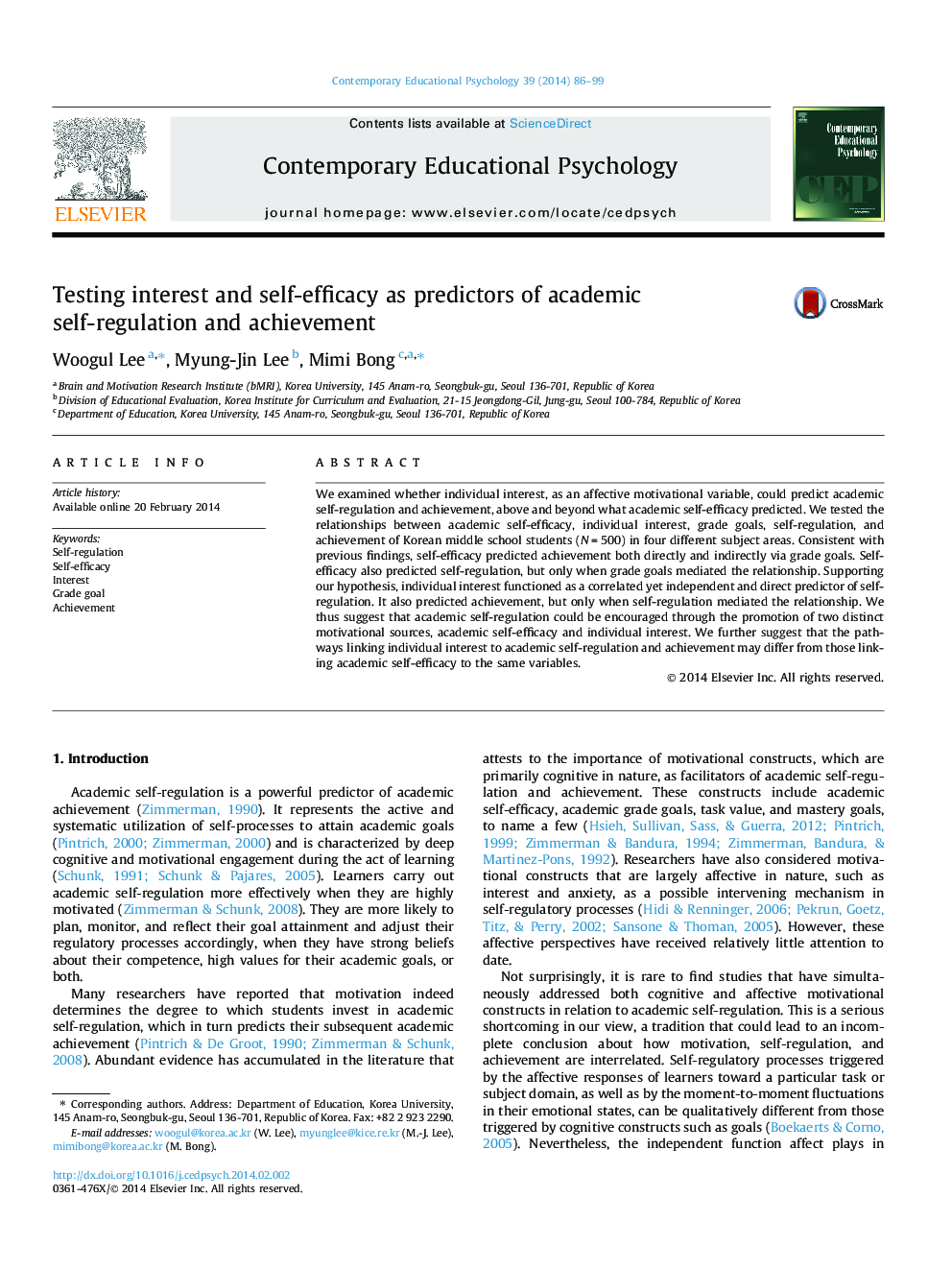| Article ID | Journal | Published Year | Pages | File Type |
|---|---|---|---|---|
| 352635 | Contemporary Educational Psychology | 2014 | 14 Pages |
•Interest predicts self-regulation above and beyond self-efficacy and grade goals.•Interest directly predicts self-regulation but not grade goals or achievement.•Self-regulation fully mediates the relationship of interest to achievement.•Grade goals fully mediate the relationship of self-efficacy to self-regulation.•However, goals partially mediate the relationship of self-efficacy to achievement.
We examined whether individual interest, as an affective motivational variable, could predict academic self-regulation and achievement, above and beyond what academic self-efficacy predicted. We tested the relationships between academic self-efficacy, individual interest, grade goals, self-regulation, and achievement of Korean middle school students (N = 500) in four different subject areas. Consistent with previous findings, self-efficacy predicted achievement both directly and indirectly via grade goals. Self-efficacy also predicted self-regulation, but only when grade goals mediated the relationship. Supporting our hypothesis, individual interest functioned as a correlated yet independent and direct predictor of self-regulation. It also predicted achievement, but only when self-regulation mediated the relationship. We thus suggest that academic self-regulation could be encouraged through the promotion of two distinct motivational sources, academic self-efficacy and individual interest. We further suggest that the pathways linking individual interest to academic self-regulation and achievement may differ from those linking academic self-efficacy to the same variables.
